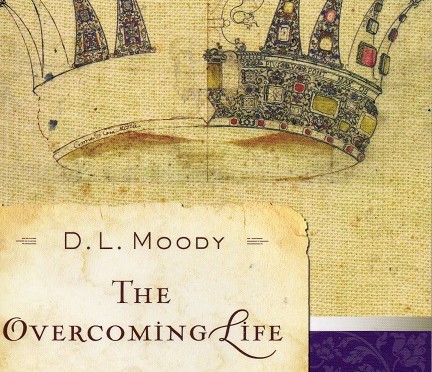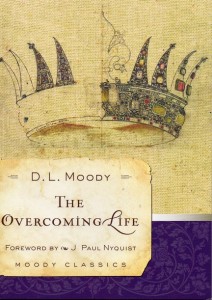Book Review: The Overcoming Life by D.L. Moody
Disclaimer: I received this book as a Goodreads giveaway on the premise that I would review it.
Dwight Lyman Moody (1837-1899) was one of the great evangelists of the Nineteenth Century. Although of limited education himself, he strongly supported higher learning and founded the Chicago Bible Institute (renamed after him after his death). He was a big believer in missionary work as well and sent many people to China to spread the good word.
This book was originally published in 1896, towards the end of Mr. Moody’s career. It is, essentially, a sermon in book form on the subject of living a life that continues to overcome the old sinful nature.
It comes with a new introduction by J. Paul Nyquist, and a short biography of Mr. Moody. You might want to skip the former until after reading the book, as it’s a bit redundant and a teensy “here’s how you should read this book.”
Once into the main text, Mr. Moody demonstrates his preaching skills. He might have started barely able to read the Bible himself, but by this late date he had plumbed its depths and could call up needed verses with a natural flow. He’s also full of stories, both those he experienced himself and ones he was told by others or read, that illustrate points. The language is a bit antiquated in parts, but nothing that a strong reader won’t be able to parse.
He has messages for both the saved Christian and those who are unsaved. It is not necessary to come to Jesus already cleansed of sin, Mr. Moody states, you come to Him as you are, even with the chains of wrongdoing and worldly urges still upon you.
But once you are saved, and salvation is free for the asking, it is up to you to continue working on overcoming the old nature within you. “It is like this: when a man enters the army, he is a member of the army the moment he enlists; he is just a much a member as a man who has been in the army ten or twenty years. But enlisting is one thing and participating in a battle another.”
Some Christians become discouraged because they face temptation even stronger than when they were unsaved, and God seems to have left them alone on the road. Mr. Moody points to the many great men of the Bible who failed at some point or another, yet God did not desert them. He also speaks of his own struggles with the sins of pride and anger, often having to mend fences with those he has sinned against.
He speaks of the enemies that Christians face, both within and without. He’s especially hard on the problem of alcohol–Mr. Moody was a forerunner of the Prohibition movement. he also speaks of the virtues that Christians can use to overcome these enemies; temperance, humility and kindness.
A large portion of the book is given to the matter of Noah, and it is here that I must regretfully disagree with Mr. Moody. He believes that if the story of Noah is not literally true exactly as it is set down, then the whole Bible falls apart. There has been a century or more since of advances in scientific knowledge and Biblical scholarship since Mr. Moody’s day, and the literal story of Noah just doesn’t stand up.
If given a choice between the Bible sometimes using metaphor and greatly simplified stories to tell a greater truth, and God deliberately making the stars and stones and genetic material such that they would contradict His own Word, then I’m going to go with the former.
That said, he tells a rip-roaring version of what it might have been like to live in the days of Noah, before the Flood.
The sermon ends with “Seven ‘I Wills’ of Christ”, detailing Jesus’ promises to those who come to HIm for salvation and persevere despite the hardships.
Afterwards are several passages of Scripture, and the words to some great old hymns.
This is a work of invitation, of admonishment and encouragement; if you feel the call, come and read.
Let;s end with a hymn, written by one of D.L. Moody’s friends–“It is Well with My Soul.”



1 comment
Comments are closed.